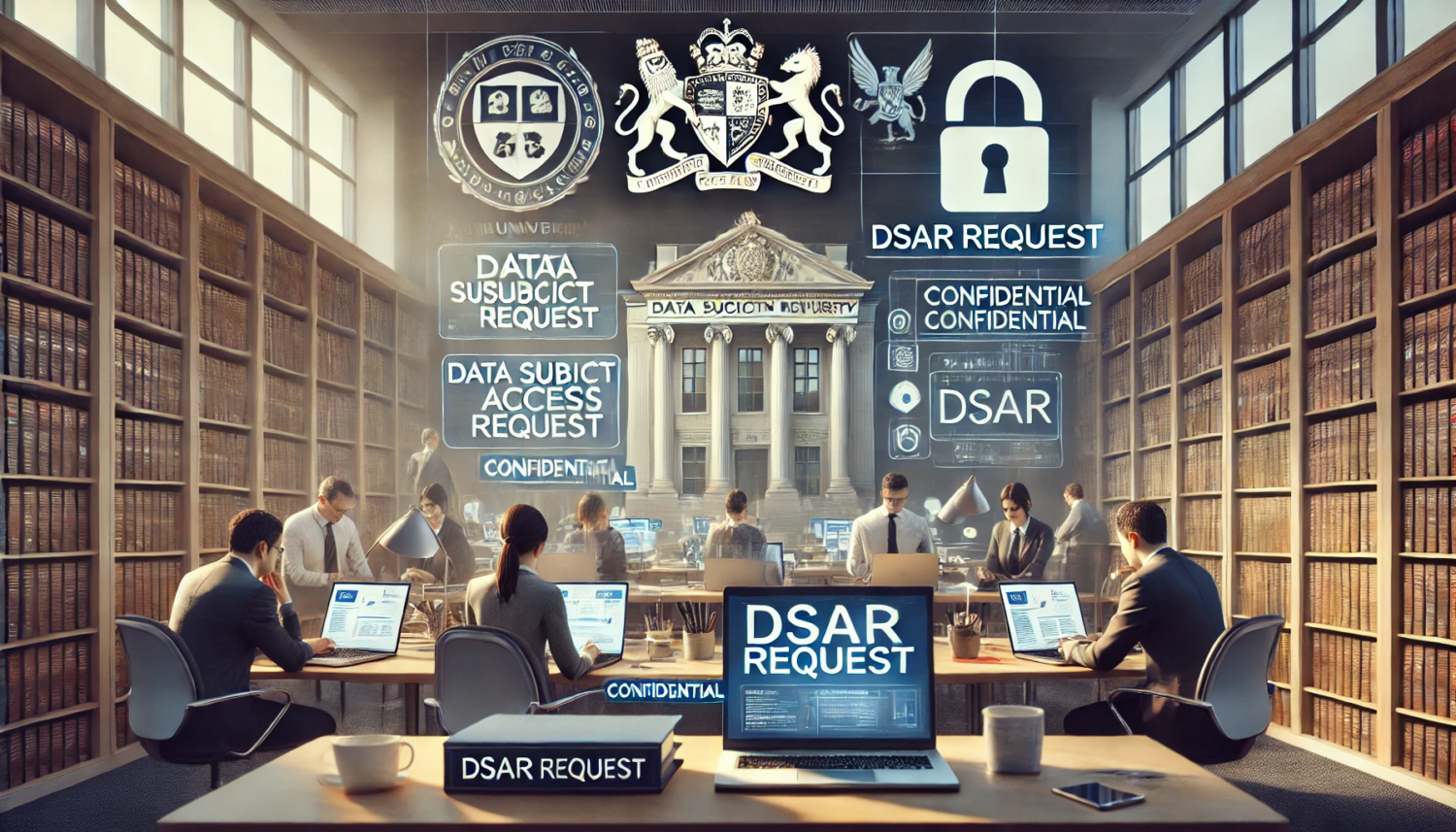Background: Top UK University, a mid-sized institution with approximately 15,000 students and 2,000 staff, is committed to protecting personal data in accordance with GDPR. The university collects and processes a significant amount of personal data, including student records, staff information, alumni details, and research data.
Scenario: In May 2024, a former student, submitted a Data Subject Access Request (DSAR) to the university. Student graduated in 2022 and requested access to all personal data held by the university, including academic records, emails, financial information, and any disciplinary records. She also wanted to understand how her data had been processed during her time at the university and whether any data had been shared with third parties.
DSAR Process at Top UK University:
- Receipt and Acknowledgment:
- The university’s Data Protection Officer (DPO) received Student’s DSAR on May 10, 2024, via email. The DPO immediately acknowledged receipt of the request and informed Student that the university would respond within the statutory period of one month, as required by GDPR.
- Verification of Identity:
- Since the request was from a former student, the DPO requested additional identification from Student to verify her identity. Student provided a copy of her passport and her student ID number.
- Data Collection and Review:
- The DPO coordinated with various departments, including the Registrar’s Office, IT Services, the Finance Department, and the Faculty of Arts (Student’s department) to gather all relevant data.
- Data collected included:
- Academic records and transcripts
- Email correspondence with university staff
- Records of financial aid and tuition payments
- Disciplinary records (there were none)
- Data shared with third parties (such as student loan companies)
- Library and campus service usage records
- The DPO reviewed the data to ensure that it was relevant to Student’s request and did not include information that could infringe on the rights of others, such as confidential references.
- Data Redaction:
- The DPO identified some emails that included personal data about other students. These were carefully redacted to protect third-party privacy before sharing with Student.
- Response and Delivery:
- On June 9, 2024, the university provided Student with a comprehensive response. The response included:
- A summary of the types of data held about her.
- Copies of all relevant documents and emails.
- A log of data shared with third parties, including the reasons for sharing.
- An explanation of how her data was processed, including any automated decision-making (none was applicable in her case).
- The data was delivered securely through a password-protected PDF sent via email, with instructions for secure access.
- Outcome:
- Student was satisfied with the response but had a few follow-up questions regarding the data-sharing process, which the DPO addressed promptly. She appreciated the transparency and professionalism of the process.
- Lessons Learned:
- The university conducted a post-case review to identify any areas for improvement. The key takeaways included:
- Enhancing training for staff on identifying personal data that may need redaction.
- Streamlining data collection processes across departments to reduce response times.
- Regularly updating privacy notices to ensure all students are aware of how their data is handled and processed.
Conclusion: Top UK University successfully handled the DSAR within the GDPR guidelines, ensuring compliance while maintaining the trust and satisfaction of the data subject. The process reinforced the importance of robust data management and clear communication with data subjects.
 020 8004 8625
020 8004 8625



